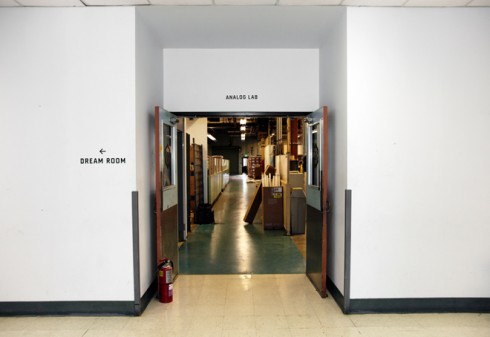
Entrance to the Analog Research Laboratory, image courtesy of wired.com
Facebook’s Minister of Propaganda spoke to a sold out crowd at Sundance Cinemas this past Thursday, February 21. The event marked two milestones for the AIGA Houston chapter: in addition to tickets selling out not once, but twice after a capacity upgrade at the venue, the event also set a chapter record for single-event attendance—168 total seats. Barry, an easy-going and often times funny speaker, extolled his slow rise from childhood to his current position over the hour-long event.
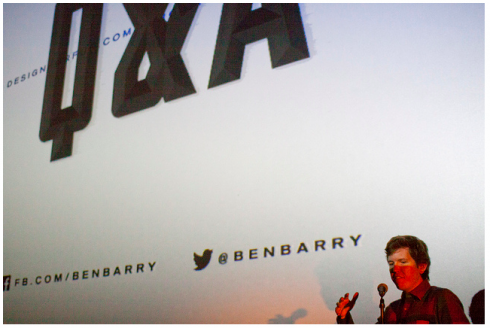
Ben Barry at Sundance Cinemas, photo courtesy of John Luu via the Houston AIGA Chapter Flickr page.
A tech geek at heart, Barry found himself screen printing posters at the industrious Austin-based studio The Decoder Ring after college.
His sudden interest in working as a graphic designer for Facebook—a position he learned about from a promoted job posting on the social network’s news feed, no less—lead to a few doubts from his superiors. Mentor John Bielenberg, head of the innovative design think-tank Project M, thought Barry was “committing career suicide.”

Egyptians protestors holding up Facebook sign, photo courtesy of Richard Engel/NBC via Arabian Gazette
But Barry believed—and still believes—in Facebook. “Facebook makes things like the Arab Spring possible,” Barry said during his presentation. And it does. Without Facebook, the shared collective conscious of rebellion and democracy that crashed like a wave over the Arab nations in Spring 2010 would have amounted to very little if not for the power of technology. Many participants found out about protests through event postings on the website.
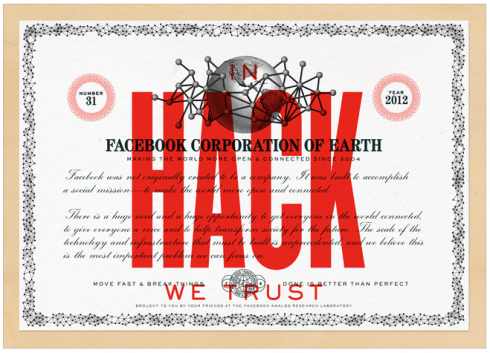
Facebook Stock, image courtesy of designforfun.com
However, Facebook’s ability to foster this kind of social change stems from it’s active internal culture, which Barry now heads. Previously, Barry was primarily a graphic designer, only breaking out his analog skills for Hackathon events. “Hackathons” are all-night events where Facebook employees are encouraged to come up with wild ideas for the site. Ever wonder where the “Like Button” came from?
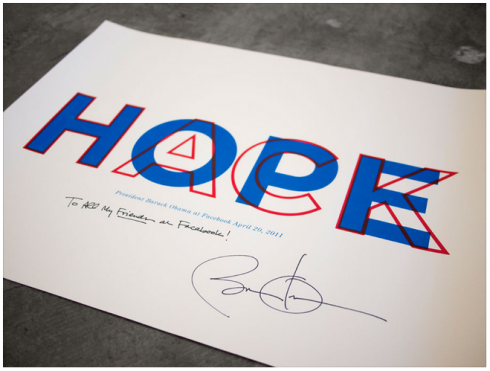
Hack Hope project, image courtesy of designforfun.com
Now Barry is able to host artist-in-residency programs, bring on innovative designers and architects to deck out the massive Menlo Park campus, and even have the President of The United States sign his work. One fact Barry shared about his Hack Hope for President Obama project is that he initially printed the President’s name incorrectly (Barak Obama) on the silk-screened poster. Barry noticed the mistake mere hours before it was due to be presented to the President. Everyone makes mistakes.
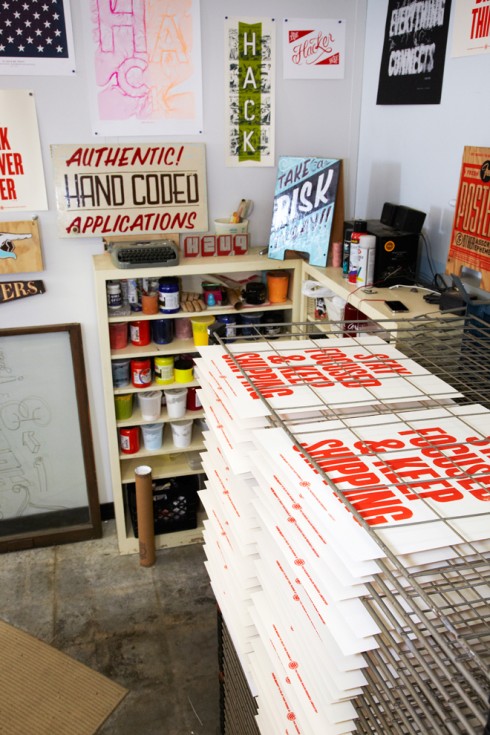
Analog Research Laboratory, image courtesy of wired.com
“We didn’t ask for permission,” Ben admitted when discussing the initial birth of his now full-time position at The Analog Research Laboratory. He just started building up the workshop from scratch in an abandoned warehouse on Facebook’s campus. Now Facebook is a design culture playground, rife with hand-painted type, neon signs, screen-printed posters, and influential, open-space architecture.
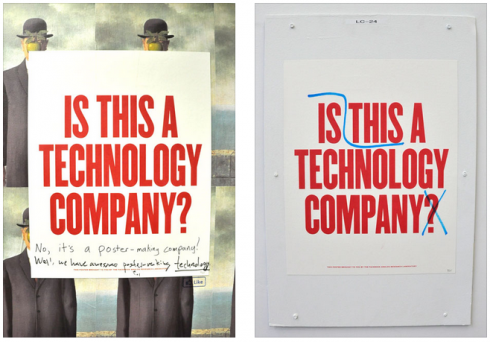
Quote posters, image courtesy of designforfun.com
A master of capitalizing on his ideas and dreams of a better, more connected world, Barry left the crowd with a single resounding thought, “Make sure you’re doing what you’re doing for the right reasons.”
Ben Barry is a graphic designer at Facebook where he runs The Analog Research Laboratory, an experimental and influential space where art and ideas are allowed to run rampant.